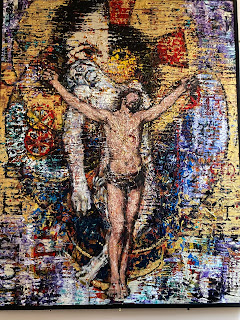When All You Can Do is Show Up
Read: Acts 5:12-16
Part of my training as a pastor was serving as hospital chaplain for a time. It was hard work. It shattered my notions of security, making me acutely aware of how fragile and vulnerable life really is. I learned both about myself and what it means to be with people amid suffering, when the unthinkable happens.
One morning I was called to the emergency room when a young college student had been found unconscious in her apartment. Her twin sister found her. At the emergency room the young woman was pronounced dead. As I came onto the unit, I was quickly sent into the room of the deceased student, where her parents were gathered around the bedside. After a prayer and a few attempted words of comfort, they told me the twin sister who found her was in the next room and asked if I could go and see her.
As I walked into the room, the sister quickly recognized that I was a chaplain by the clergy collar we were required to wear. Immediately she began screaming out in anger, “How could God let this happen?”, “Where was God, now?”, on and on… I was not sure what to do, so I just sat in an empty chair across the room and said nothing, just listening to her cries and screams coming from the deepest regions of the soul.
Later I told my supervisor about the visit and how it felt like a failure to me. I didn’t say anything inspiring or particularly comforting. I didn’t even pray with her. I was in something of shock and my silence was more a resignation to the futility of the moment than a way of pastoral care. I was scared, sad for this woman and her family, and it felt like a raw and paralyzing pain was hanging over all of us.
After a moment my supervisor gently replied, “what else could you do?” He pointed out that this was not the time for a theological discussion on the presence of God amid suffering. Forced prayer probably not the most compassionate act. No, it was just a time for being in the pain of the moment. He then went on, “When we can do just this, we become visible reminders of the presence of God. We let hurting people know that when they are angry, scared, doubting and full of questions beyond easy answers…God will not walk away from them. Even when they scream out at God, God sits patiently and lovingly with them. Our simple presence can point people to this faithful love of God.” That last sentence changed my whole approach to being with people in painful times.
Sometimes there is nothing we can offer people but our presence and the love of Jesus. We don’t have to bring the answers. We don’t have to fix the problem. All we must do is show up and let people know they are not alone, and that God won’t walk away from them, and neither will we. It is what is referred to as the ministry of presence.
In the short story of the Apostle Peter above, we catch a glimpse of the power of presence. As Peter simply showed up in the presence of hurting people, the healing of God came to rest upon them all. Discipleship, then, is often not about having all the right answers, the greatest abilities, or the most knowledge. It is simply showing up to be present with people, to love them where they are, and trust that the healing power of God will fill the space.
This is the reason one of the membership vows in the United Methodist Church is “presence”. We promise to be present to God and one another. It of course implies showing up, being an engaging and supportive presence in the congregation. At a deeper level, though, it means promising to be a living reminder of the faithfulness and love of God. It means showing up for one another to let the healing grace of God fill our church and our lives.
How are you living out your promise of “presence” to God and others? To the church? This era of COVID-19 has made physical presence difficult, but how have you been present online and shown up in the ways you could? How might God be calling you to be more present in the future?



Comments
Post a Comment